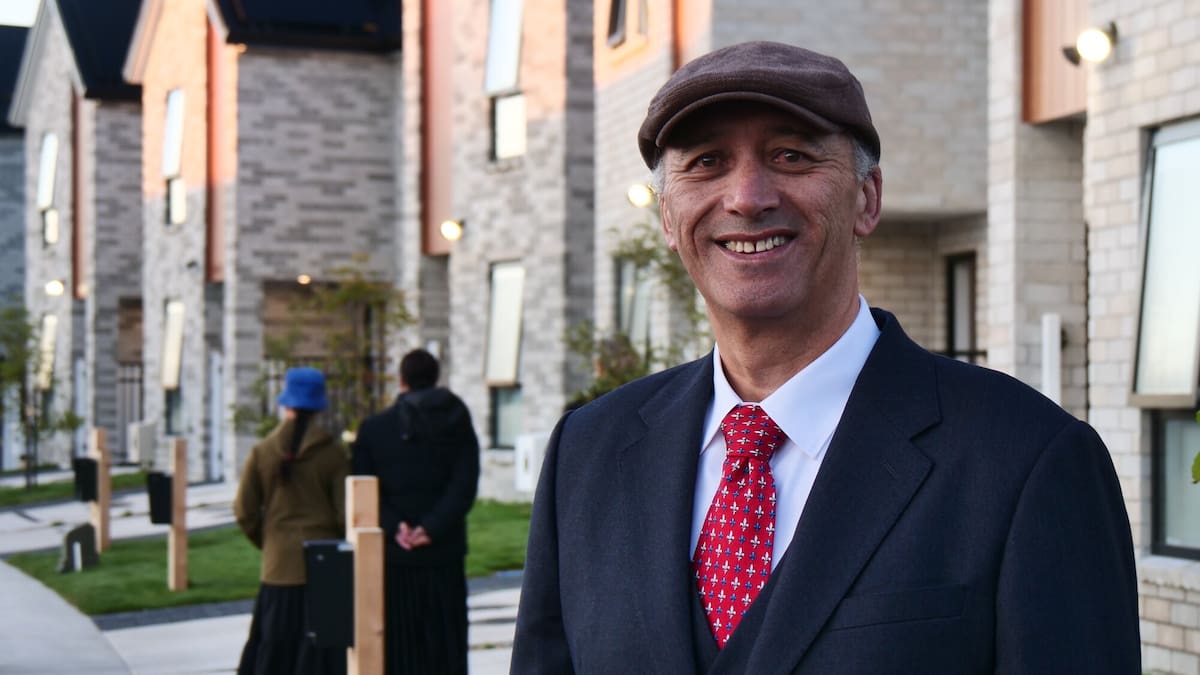“This was well known as the hood – if you know Shakespeare [Ave], you know Shakespeare,” he said.
Peke would ride his bike to the street to hang out with his friends.
“How we all knew … where all our mates were, is we just checked where the most bikes were.
“That’s my memory of this place as a community. Now, being able to live here, it’s beautiful.”
He said the road to progressive home ownership was like learning another language.
“I thought it was hard learning English, but this language of finance, booking the lawyers. Talking to home brokers.
“Anxiety.”
Peke credits his kaumātua with helping him overcome the anxiety, as they helped him build “resilience and perseverance for the better of tomorrow”.
Te Rūnanga o Kirikiriroa chief financial officer Kimo DeCaries said the home ownership model at Te Puāwaitanga o Ngā Waka was “rent to buy”, which means as tenants pay their rents, part of that money goes towards a deposit.
“It enables the finance to save and invest in equity when they’re ready to purchase homes.”
Te Rūnanga o Kirikiriroa board co-chairperson Hagen Tautari said almost all of the homes have been allocated, and residents will be able to move in once the developers vacate the area.
“This occasion marks the beginning of a new future for our whānau, our community and our great city.”
He said the cost-of-living crisis had placed a burden of responsibility on iwi leaders to ensure a safe and prosperous outcome for their people.
“Fortunately, we have not journeyed alone. Our kaitiaki walked alongside us.
“The celestial bodies have been replaced with successive governments and evolving policies, from birds and wildlife to local council considerations, from ocean swells and wind patterns to inflation and housing affordability.”
Te Rūnanga o Kirikiriroa and Pragma Homes broke ground in November 2024 on Te Puāwaitanga o Ngā Waka development, a project that will deliver 45 new homes.
Te Rūnanga o Kirikiriroa chief executive, Andrea Elliott, said over the past five years, Te Rūnanga o Kirikiriroa has supported over 20,000 people by providing safe and affordable housing.
“Whānau don’t just survive, but as someone said, ‘they thrive and they love’.
“We will be able to build and open at a time when, politically, economically, and culturally, there have been concerted efforts to silence … It has not been easy.”
She said Te Puāwaitanga o Ngā Waka development was guided by whanaungatanga (relationships), rangatiratanga (autonomy), manaakitanga (support), arohatanga (professional services including courageous conversations), tika (fairness) and pono (truth).
Home design incorporated a focus on accessibility to support intergenerational living, Elliott said.
Pragma director Sanji Mistry said he was pleased with the “speed and precision” with which the development was built.
He said the plan had been to complete it earlier, but the Covid-19 pandemic created multiple challenges.
Tom Eley is a multimedia journalist at the Waikato Herald. He previously worked for the Weekend Sun and Sunlive.

